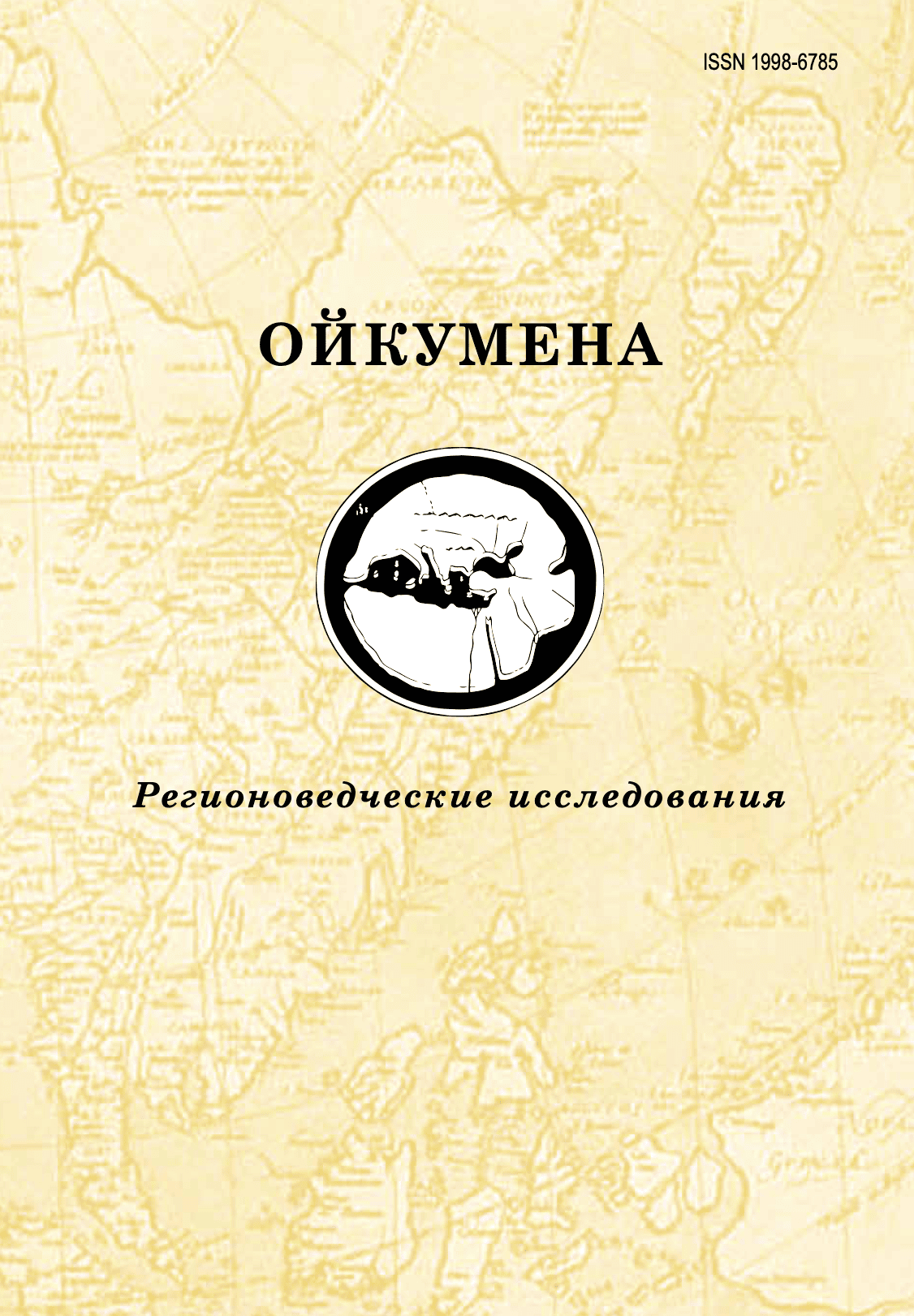from 01.01.2020 until now
Vladivostok State University of Economics and Service (Department of theory and history of Russian and foreign law, Head of the department)
from 01.01.2013 to 01.01.2020
Moskva, Moscow, Russian Federation
graduate student
Moscow, Moscow, Russian Federation
The article analyzes the process of introducing digital technologies into the regional political process, discusses negative and positive trends in the digital transformation of the regional electoral process. The study is based on empirical studies conducted in the Central, Northwestern and Volga Federal Districts of the Russian Federation. Remote electronic voting is considered as a technological response to the demand of the population for the "digital simplification" of public services and the development of interactive forms of political participation. The content of the work traces the influence of REV on the transformation of the electoral process and election campaigns of regional political actors. Three typical strategies implemented within the framework of election campaigns using REV technology are highlighted, and often implemented manipulations around REV and mechanisms to counteract the latter are discussed.
remote electronic voting, election campaign, regional policy, political process, digital transformation
1. Akopova T. S. Institutes of thought – a new intellectual project // Social and humanitarian knowledge. 2020. Vol. 6, N. 3(23). P. 210-217. (In Russ.). https://doi.org/10.18255/2412-6519-2020-3-210-217 EDN: https://elibrary.ru/FSXXLG
2. Arutyunov A. G. Implementation and legitimation of the results of remote electronic voting in the regions of Russia: features of urban and rural practices // Bulletin of the Peoples' Friendship University of Russia. Series: Political Science. 2023. Vol. 25, N. 3. P. 738-751. (In Russ.). https://doi.org/10.22363/2313-1438-2023-25-3-738-751 EDN: https://elibrary.ru/SAZBVV
3. Baulina A. A. Certificate of state registration of a computer program No. 2023662955 Russian Federation. DEG Monitoring No. 2023662051: application 06.06.2023: published 16.06.2023. (In Russ.).
4. Borisov I. B., Ignatov A. V. Electronic voting in Estonia is breaking records. General and special in the international development of DEG // Electoral legislation and practice. 2023. N. 1. P. 14–20. (In Russ.). https://doi.org/10.18572/2500-0306-2023-1-14-20 EDN: https://elibrary.ru/NFYQLR
5. Vinogradova I. M. Public administration policy in Russia: the republic's experience and long-term prospects // Politbook. 2024. N. 2. P. 51–76. (In Russ.). https://doi.org/10.24412/2227-1538-2024-2-51-76 EDN: https://elibrary.ru/MIANZA
6. Volodenkov S. V., Fedorchenko S. N., Pechenkin N. M. Features of the formation of a worldview in the modern digital environment: an analysis of academic discourses // Discourse-Pi. 2023. Vol. 20, N. 1. P. 8–26. (In Russ.). DOI: https://doi.org/10.17506/18179568_2023_20_1_8; EDN: https://elibrary.ru/PMVUYN
7. Zuboff S. The era of supervisory capitalism. The battle for the human future at the new frontiers of power. Moscow: Gaidar Institute Publishing House, 2022. 784 p. (In Russ.).
8. Ignatov A. V. The main experiments of electronic government // Public administration and practice. 2021. N. 1. P. 10–15. (In Russ.). https://doi.org/10.18572/2500-0306-2021-1-10-15 EDN: https://elibrary.ru/UWZPTJ
9. Kochetkov A. P., Mamychev A. Yu. The digital elite: formation and development trends // Polis. Political research. 2024. N. 4. P. 13–145. (In Russ.). https://doi.org/10.17976/jpps/2024.04.10 EDN: https://elibrary.ru/CQFELT
10. Kochetkov A. P., Mamychev A. Yu., Mordovtsev A. Yu. "Digital transit" of public-power relations: general and elite characteristics // Asia-Pacific region: economics, politics, law. 2022. Vol. 24, N. 1. P. 109–134. (In Russ.). DOI: https://doi.org/10.24866/1813-3274/2022-1/109-134; EDN: https://elibrary.ru/WJIBWM
11. Longbin Ts. The way of thinking in data science: The Coming scientific, technical and economic revolution. St. Petersburg: Publishing House of the European University in St. Petersburg, 2022. 552 p. (In Russ.).
12. Nabatnikova E. A. DEG (remote electronic voting) in the Russian Federation // Smart digital economy. 2022. Vol. 2, N. 1. P. 26–30. (In Russ.). EDN: https://elibrary.ru/DMDMNH
13. Novikova K. Y. International legislation in the field of "remote electronic voting" // Political Consultant. 2023. Vol. 3, N. 3. P. 1–7. URL: https://politicjournal.ru/07pk323.html (accessed 05.05.2024). EDN: https://elibrary.ru/AAZQVU
14. The image of Russia's digital Future: formation and representations / Under the general editorship of V. V. Zotov, G. R. Conson, S. V. Volodenkov. Moscow: MIPT, 2024. 150 p. (In Russ.).
15. Smorgunov L. V. Political ontology of digitalization and state governance / Ed. by L. V. Smorgunov, Moscow: Aspect Press Publishing House, 2022. 351 p. (In Russ.). EDN: https://elibrary.ru/LYTXPD
16. Urri J. What the future looks like. Moscow: Publishing house "Delo" RANHiGS, 2018. 315 p.
17. Fedorov V. I. The return of electronic voting in the parliamentary elections in Switzerland in 2023 // A. Metamorphoses. 2024. N. 2. P. 77–92. (In Russ.). https://doi.org/10.24412/2227-1538-2024-2-77-92 EDN: https://elibrary.ru/GQXFMM
18. The value of law in the context of digital reality: a monograph / General ed. Rybakova O. Y. M.: Prospekt, 2024. 312 p. (In Russ.).
19. The Era of electronic Democracy: how online voting works. URL: https://www.ridus.ru/news/336071 (accessed 05.05.2024). (In Russ.).
20. Finogina T., Herranz Ja. On remote electronic voting with both coercion resistance and cast-asintended verifiability // Journal of Information Security and Applications. 2023. Vol. 76. P. 103554. https://doi.org/10.1016/j.jisa.2023.103554 EDN: https://elibrary.ru/DYCHCN
21. O'Neil K. Weapons of math destruction: How big data increases inequality and threatens democracy. New York: Crown Publishing Group, 2016. 259 p.
22. Sereda M. A., Yasyrkina V. A., Malinenko E. V. Remote electronic voting // Scientific Almanac of the Association France – Kazakhstan. 2023. N. 6. P. 42–49.
23. Wulf L. The gamification of political participation // Moral Philosophy and Politics. 2019. № 6. P. 261–280.











